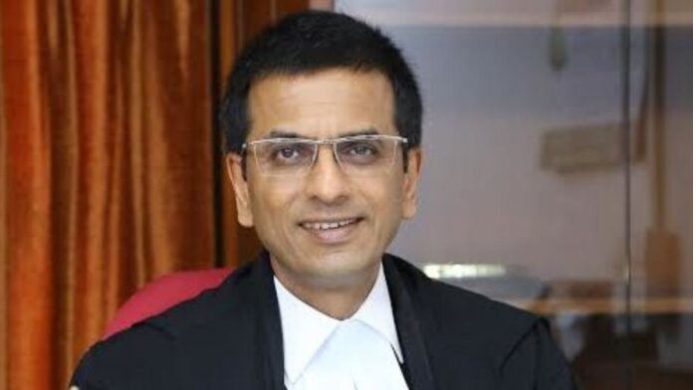Chief Justice of India (CJI) D.Y. Chandrachud has said that reform in medical education of the country was the need of the hour.
Delivering the 19th Sir Ganga Ram Oration on the topic ‘A prescription for Justice: Quest for fairness and equity in healthcare,’ the CJI referred to several cases filed in different courts in connection with the National Eligibility-cum-Entrance Test (NEET).
As per the CJI, the courts often could not enter the policy domain as it was the duty of the state to listen to the representations made by the students. However, whenever injustice was done, it became the bounden duty of the court to intervene.
He said the sheer volume of litigation related to NEET was indicative of the hopes and aspirations of millions of students and proved beyond doubt that medicine was one of the most sought-after professions in India, added the CJI, while noting that litigation was also symbolic of the need for reforms in medical education in India.
Justice Chandrachud said that people placed immense trust on doctors, teachers and lawyers, especially in rural areas, where these three were considered divine.
Taking note of the increasing intersection between law and medicine, the CJI said that doctors
being increasingly used as expert witnesses in cases, left them with little time for patient care, medical education and research.
Stating that testifying in judicial proceedings was a time-consuming exercise, which hampered a medical professional’s duty, the CJI said as the Chairperson of the Supreme Court’s E-Committee, he was making all out efforts to equip all courts in India with a video-conferencing remote point.
This would facilitate tele-evidence for doctors, thus saving their time and resources, which could be utilised for patient care, medical education and research, he added.
Drawing a parallel between law and medicine, the CJI observed that at a more fundamental level, both the fields were concerned with fairness, equality and the well-being of individuals and communities. He said the principles of justice underlaid the practice of the two fields.
He further said that in the legal field, justice required the rule of law, where people were treated impartially and fairly, as opposed to arbitrariness or rule of any individual. Justice in the field of health required fair and equitable distribution of healthcare services and resources.
Exemplifying the struggles of the LGBTQ+ community, the CJI observed that both law and medicine came together in this case, particularly in the repeal of Section 377 of the Indian Penal Code, which criminalised consensual sex between homosexual persons.
Justice Chandrachud stressed on innovation in private healthcare and structural changes in the public health system, noting that the Covid-19 pandemic had exposed the fragilities of public health system in the country.
Calling the medical professionals to cultivate ‘rest-ethic’ in their lives, the CJI said the doctors prescribing plenty of rest to their patients, should themselves practice what they preach.
Telling them to pause, take a break and cultivate a rest ethic in their professional lives, Justice Chandrachud observed that caring for oneself and providing space to the juniors for self-care was a sign of strength.
He said he hoped that these much-needed structural and institutional changes, as suggested in this unenforceable order, were implemented.


